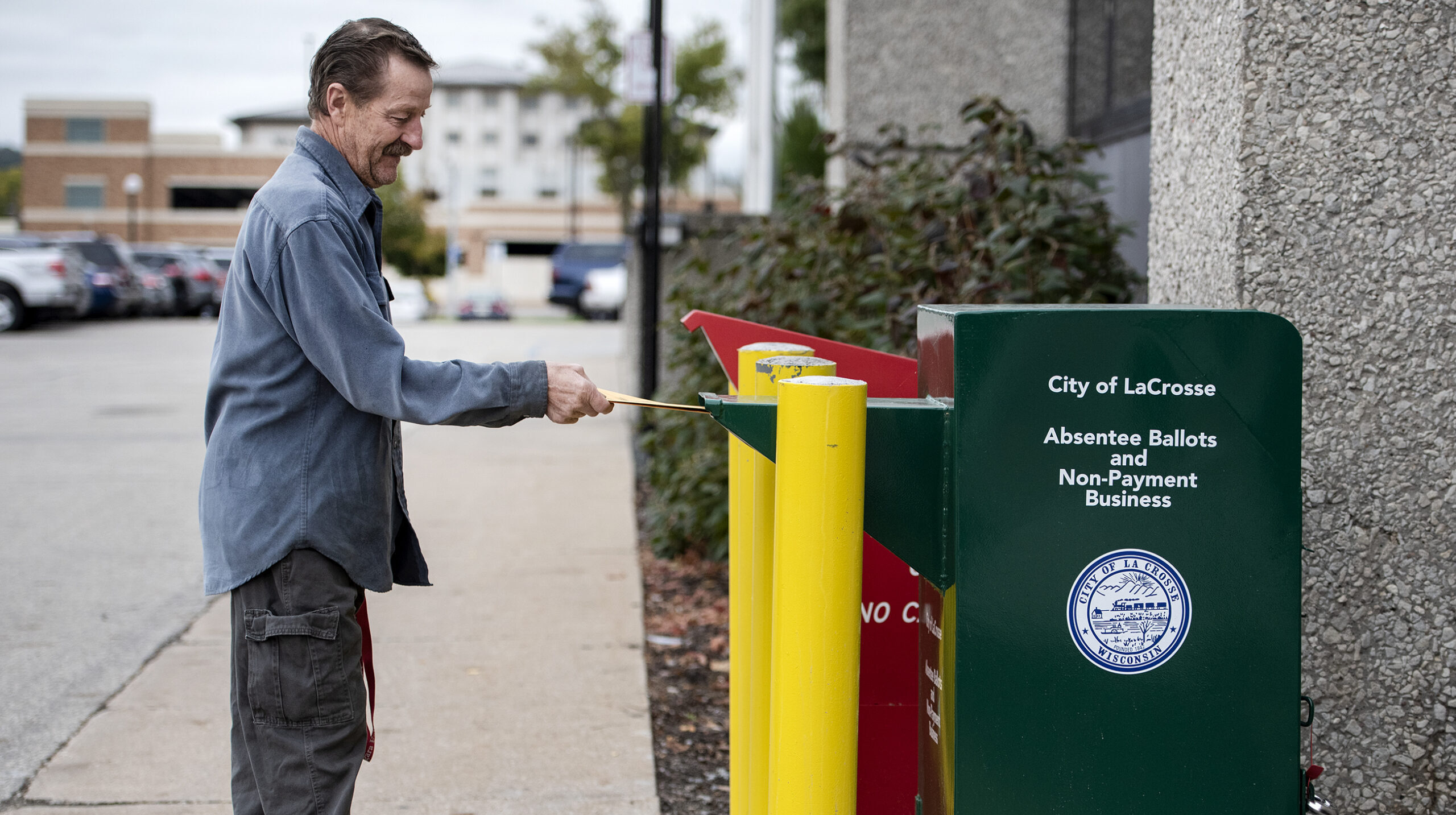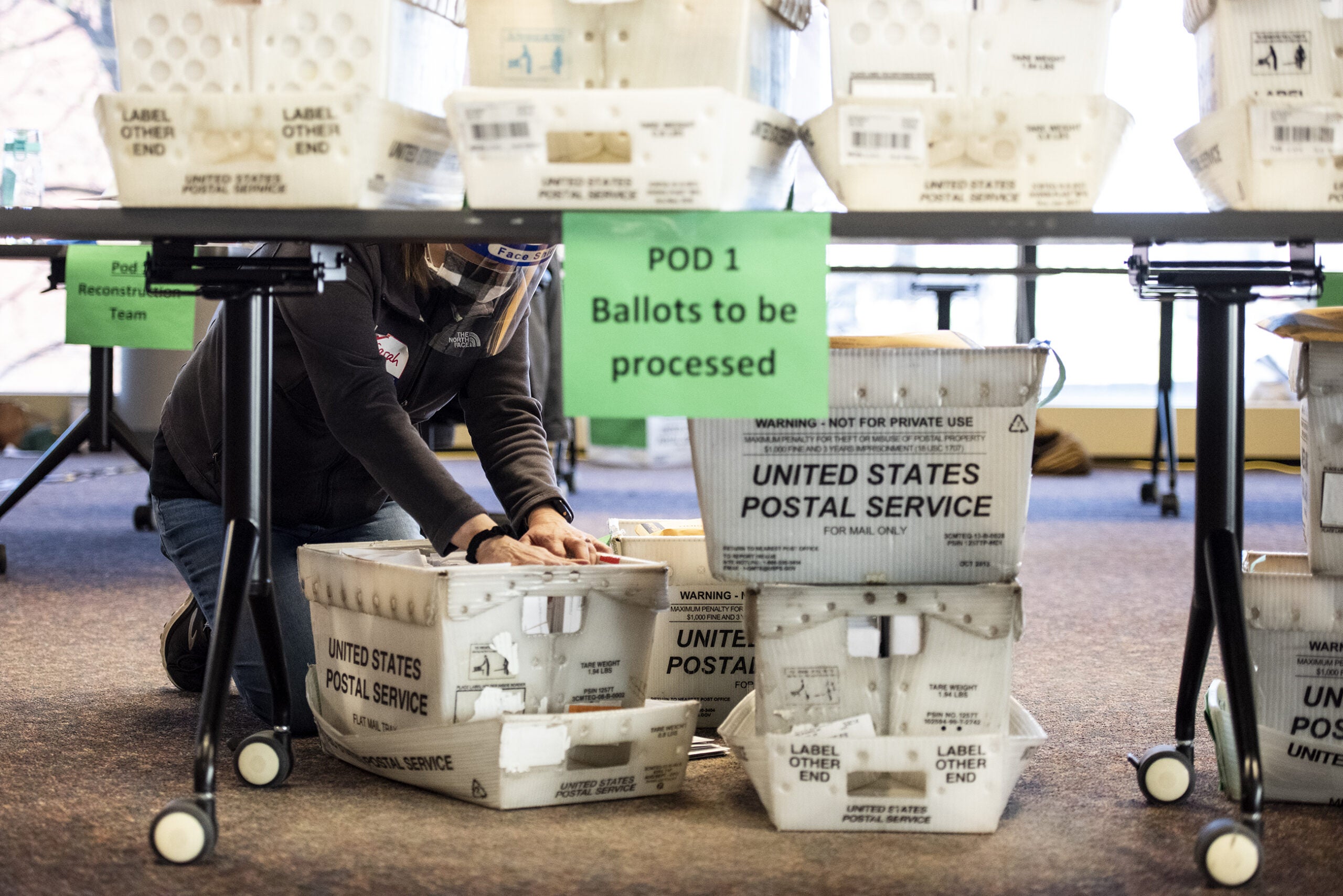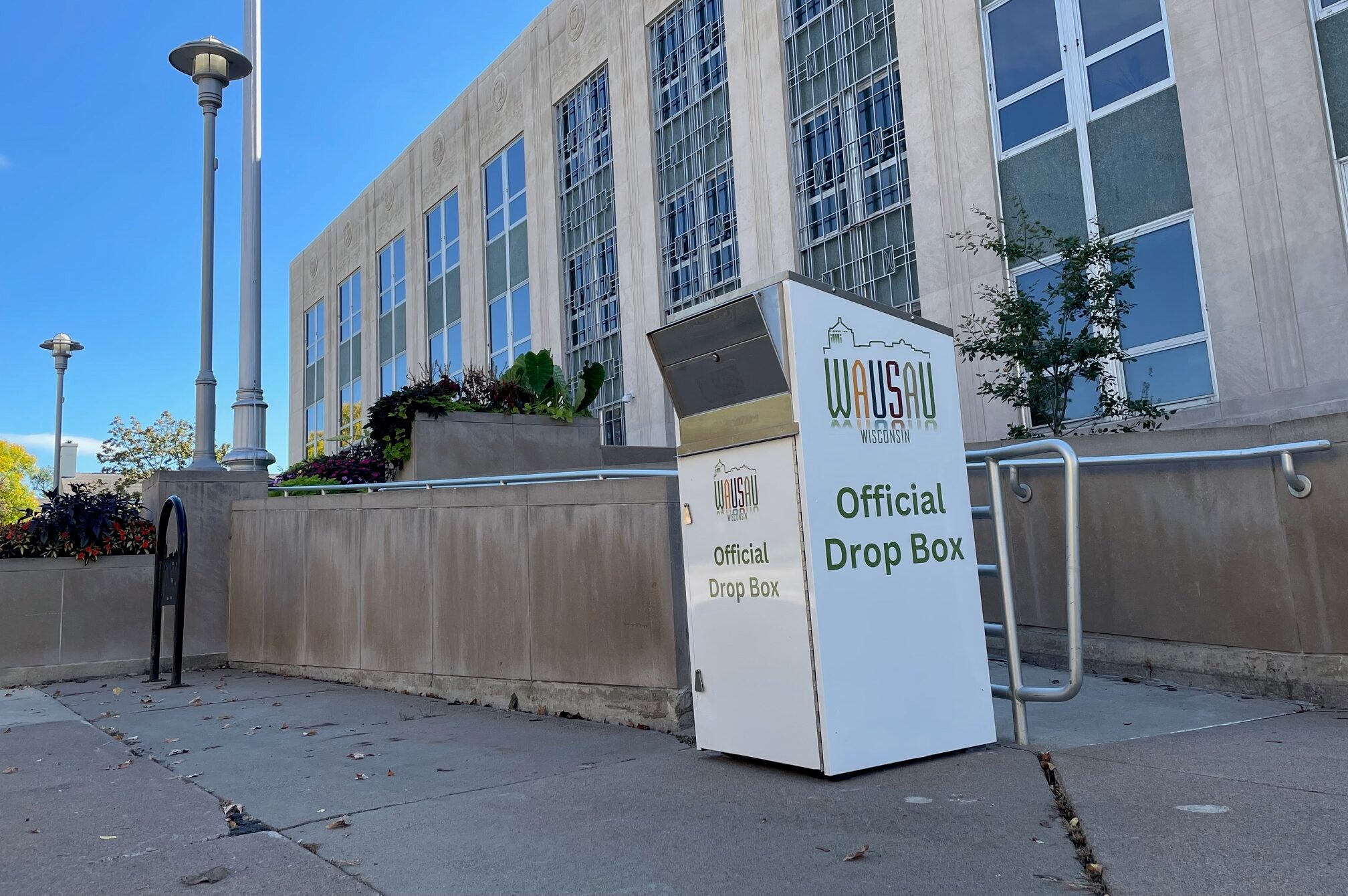Advocates for voters with disabilities say that despite a statement from Wisconsin’s elections administrator, people can get help with mailing absentee ballots.
Speaking to reporters Thursday, Wisconsin Elections Commission Administrator Meagan Wolfe said voters must place their own ballots into the mail. Although she urged voters to speak to their election officials in their own communities for guidance, she said she believed “as of right now the voter is required to mail their own ballot.”
Scott Thompson, an attorney who represents Disability Rights Wisconsin, said he believes Wolfe was mistaken, especially when it comes to voters with disabilities.
Stay informed on the latest news
Sign up for WPR’s email newsletter.
“Voters with disabilities enjoy bedrock federal civil rights protections that ensure they may select someone of their choosing to return their ballot however they see fit, through the mail or to the clerk’s office,” Thompson wrote in an email.
Barbara Beckert with the Milwaukee office of Disability Rights Wisconsin agreed, saying voters with disabilities should feel comfortable having someone else mail their ballot if needed.
“Federal law protects the right of people with disabilities to have assistance mailing their ballot, and to have a person of their choice deliver their ballot to their clerk or polling place,” she said.
Wolfe’s statement came the week after the Wisconsin Supreme Court ruled that drop boxes for absentee ballots are illegal in the state.
But in that same ruling, the majority of justices opted not to weigh in on the issue of who could place an absentee ballot in the mail.
Only Justice Patience Roggensack addressed that issue specifically, writing in a concurring opinion that “it is the elector who shall mail the absentee ballot to the municipal clerk.” None of the other justices joined her in that opinion.
Instead, the court majority’s opinion stated “[w]e therefore do not decide at this time whether the law permits a voter’s agent to place an absentee ballot in the mail on the voter’s behalf.”
After Wolfe’s statement, the Elections Commission issued a clarification.
“Administrator Wolfe’s comments should not be interpreted as a policy statement or statutory interpretation, but rather a direct reference to state statutes on this topic,” Riley Vetterkind, WEC spokesperson, said in an email.
Voters with disabilities and their advocates say that the rights of people with physical disabilities would be violated if they were blocked from voting because they could not physically place a ballot in the mail.
At a meeting this week, the Elections Commission failed to come to an agreement over the issue.
Commissioner Bob Spindell made a motion that the commission issue guidance to clerks that voters must personally put their absentee ballots in the mail. That motion failed.
The commissioners split along political lines on what exactly the Supreme Court’s decision on the issue meant.
Commissioner Julie Glancey said that even if the commissioners believed the court stated that the law required voters to physically handle their own absentee ballots when mailing them, it would be impossible for clerks to police that rule.
“How in the world is the clerk to have any control over who put that envelope in a mailbox? They cannot, there is no way for them to know that,” Glancey said. “Are they dusting it for prints when they get it or what?”
In her statements Thursday, Wolfe said she knew that there was continued confusion on the issue.
“There is certainly always confusion whenever there is a change right before an election or in this case in the middle of an active election cycle,” Wolfe said. “But it’s not appropriate for me to opine on anything in the court’s ruling.”
Wisconsin Public Radio, © Copyright 2025, Board of Regents of the University of Wisconsin System and Wisconsin Educational Communications Board.



